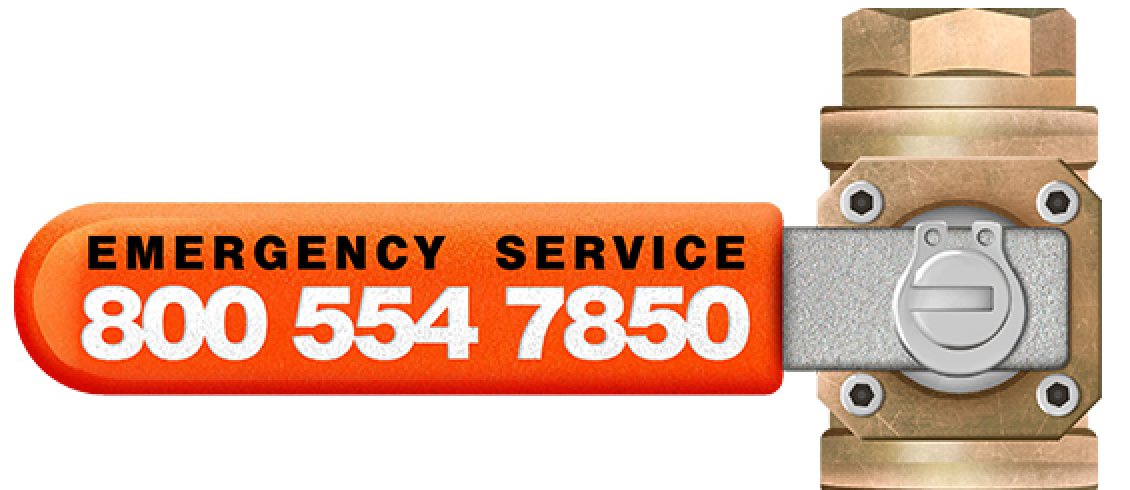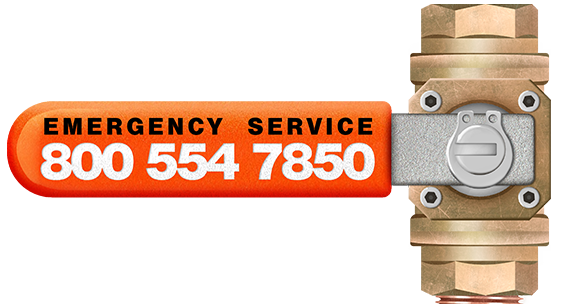Fire Chaser – Friend or Foe?
Firetruck chasing or Fire chaser is sometimes used as a derogatory term. It’s a stereotype based on experiences some people have had with a few unscrupulous contractors. Some lawyers are called ‘ambulance chasers’ or ‘slip and fall’ lawyer, also in a derogatory way, but when you really need an attorney to represent you and your interests, the derogatory term doesn’t matter anymore. The same is true of fire chasers when you understand the role that a fire chaser plays in your time of need.
They are called fire chasers because when they learn of an active fire, they go to the scene with the intention of offering their emergency services to the home or business owner. They will even show up while the fire is still burning.
The objection to fire chasers comes from some who intentionally and unethically mislead property owners after a potential property insurance loss. They are accused of taking advantage of someone at their most vulnerable.
Just like any other profession, there will be a few well-known characters that give an entire profession or industry a bad name. Just as most dogs are loving, playful, over-eager, and sometimes even gentle, it’s the dog that barks aggressively or bites that make some people uncomfortable with them.
What Is a Fire Chaser Really?
The internet is full of one-sided articles talking about these first responders to property loss. That’s what a fire chaser is, someone there to help you with your property loss in the immediate aftermath of a disaster. We are ever grateful for the fireman, police, and EMTs who come to help people and save lives. We support them in every way we can and are in awe of the work they do. We try to help them by staying away from the active scene.
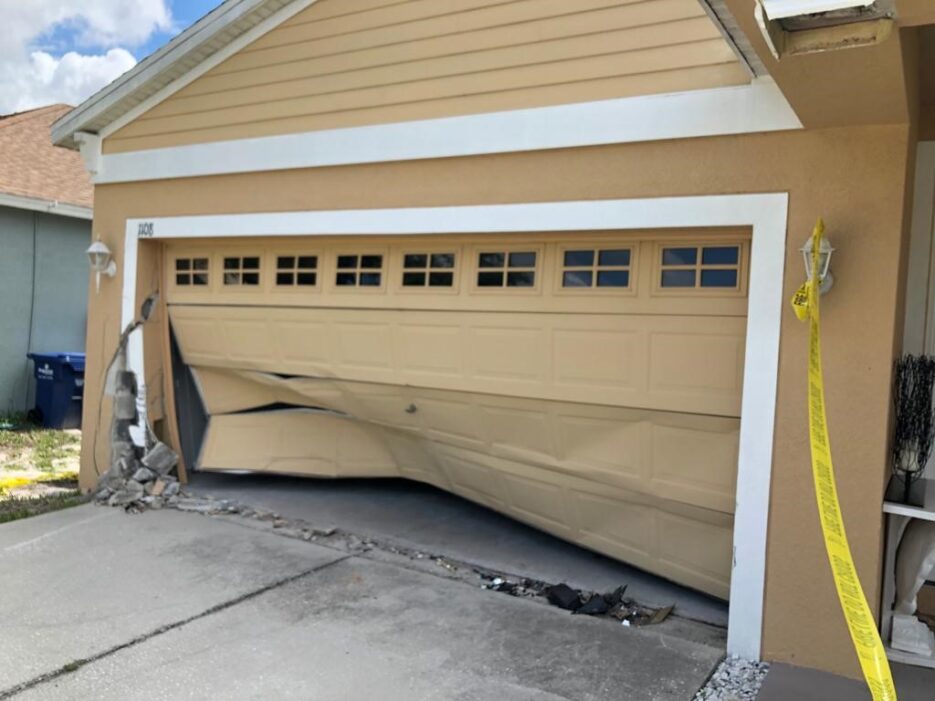
But once the situation is stabilized, you are still left with property that has been damaged. That too needs to be protected.
Usually, a professional first responder to property loss is an individual with vast property restoration experience. They will typically be experienced with Water, Fire, and mold remediation. The job of this first responder (or “Fire Chaser”) is to be ready to respond to a potential property loss 24 hours a day, 7 days a week. They see all kinds of property damage, and it’s not just limited to fires. It can be a fire, but also a contest of ‘car vs building’. Whether the hole in the wall is caused by fire or a car crashing into it (or anything else) the fire chasers are there, ready, willing, and equipped to board up the opening. This is to prevent further damage to your home and those things that may still be in good condition inside.
The board up will protect your home from rain, flying debris, racoons and other pests, potential looters, and if the house is still livable after the event, will help with temperature control for whomever remains in the home.
Businesses Are in Business to Make a Profit, and They Stay in Business By Helping Their Customers
Companies whose business is emergency services are just that, in business. Like every business, they exist to serve their customers at a fair price that will help the home or business owner, and at the same time, stay in business to help another day. As a business, they need to find customers to help. Fire chasing is a direct way to do this. Make these services available immediately to people who are certain to need that help.
Nobody knows when a disaster will strike, so knowing who will need these services requires work. There are several ways to find when and where disaster has struck and who is in immediate need of these emergency, mitigation, and reconstruction services. Every company goes about it in their own way using resources they already have; relationships, purchasing services, or building their own system. Here are some of the ways Emergency Services and Restoration companies go about finding leads for people in desperate need of their services:
- Engage with a third party company who provides dispatch to an emergency where there is the potential for property loss.
- Purchase scanners and listen live for dispatching of fire departments.
- Create an entire department with dedicated towers and scanners with live monitoring 24 hours a day. Use built in Artificial intelligence to sort through radio traffic to identify potential leads.
- Use relationships with members of the Fire Department or develop them where none already exist.
- Enroll in an insurance company’s preferred vendor list.
- Advertising their services online and in traditional mediums like television, radio, and billboards.
- Word of mouth.
Will a homeowner in need know who to ask for a referral? Will a homeowner remember the name and phone number of the company who advertised on a billboard?
The “Good Guys” Who Take the “High Road”
There are many companies who refer to themselves as “the good guys”, because they don’t ‘chase fires’. And they write about fire chasers in a negative light, complaining about others taking advantage of someone in their most desperate hour of loss. The truth is, many of them have attempted this method of customer acquisition themselves, but for some reason or another did not succeed. Rather than adjust to the needs of the customer to find the way to help homeowners in their time of need, they abandoned using this approach and impugn those who do.
Without a doubt, there are unscrupulous fire chasers in the industry. They take advantage of people and use unethical tactics to get a homeowner’s money.
These “good guys” suggest that all are like that. They follow what they call a higher road and help people who come to them and take referrals from insurance companies. The suggestion being that taking this approach makes them ethical. While there is nothing about that approach that is unethical, it doesn’t bestow ethics on them either.
Showing up at the scene of a disaster and offering to help is not unethical at all. But when these “good guys” show up and ‘lose out’ to the unscrupulous, they get dispirited. Perhaps they saw another company getting special access to the homeowner while the fire department kept all other Emergency Services companies behind the yellow tape with the press and other onlookers. Perhaps they witnessed a fireman introducing their competition to the homeowner. Or they saw other fire chasers who didn’t respect the custom of each person speaking with the homeowner in the order of when they arrived.
The biggest mistake anyone can do is see evil and do nothing about it. In an industry where companies behave unethically, it is especially important for the ethical to stay and make it better. To give the public better options from which to choose. They should stand tall and do right. As the ethical contractors persist, they can influence the whole industry by example. To give homeowners the opportunity to choose a good company in their time of need.
Some companies don’t know how to compete against other fire chasers for business. Some are not inclined to that sort of competitive environment but would rather compete for business in other ways. That’s certainly fine and we respect that. We are also glad that there are ethical companies who are ‘cut out’ for this environment and are able to provide services to homeowners in their hour of need.
One Referral Source Is No More Ethical Than Another
When reviewing the list above of ways Emergency Services companies find people to help, does it matter how they learned of a customer’s needs?
Suppose, for example, that the insurance referral is trusted because an insurance company has recommended them, or you’ve seen the company’s advertisements on billboards and heard their radio ads, or a friend told you about a company that helped them after a hurricane, in any of these circumstances, you barely think twice about the company you choose to hire for your immediate needs.
Now consider that the very same company that was referred to you in one of these circumstances is there at the scene of your fire, would the fact that they heard about your fire on the scanner and showed up to offer services change who they are, if they can be trusted, or if they do business in an ethical way?
You Still Need Immediate Help
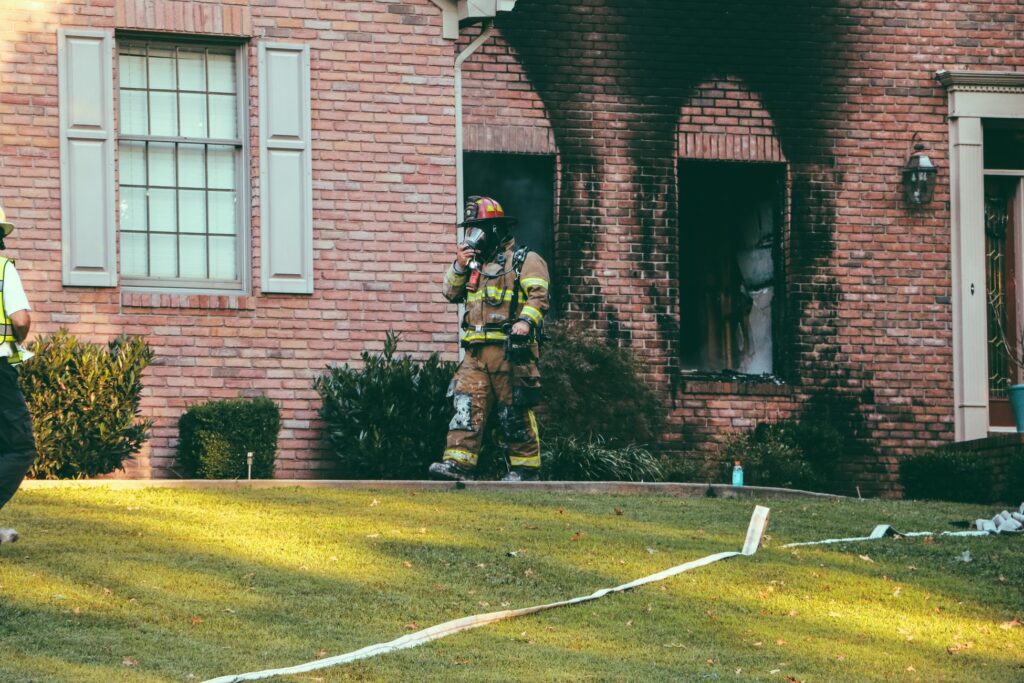
Make no mistake, when you’ve had an emergency like a fire, you need someone to help, and to help right away.
There are many good companies providing first responder services, or “Fire Chasing” – from national well-known brands to local companies. Many of them have tried to “chase fires” and many continue to make this an active part of their business and their way to serve their communities.
With dedication, all the good companies out there can change the industry. They are investing hundreds of thousands of dollars in their systems, building relationships, and training their employees. As we keep at it, keep doing good, and keep growing as businesses, we will eventually drive all the crooks out of business. The best way to fight evil is to act.
So, What Do You Do After a Fire or Any Property Loss?
Every scenario is unique, but for the sake of illustration, lets create a scene – a realistic incident, and break it down.
It is Christmas time and on a very cold night, you forgot to turn off the Christmas tree lights. At about 2 o’clock in the morning the tree catches fire, your smoke alarms go off and the family is startled awake to discover the house is on fire.
Fortunately, your whole family is able to escape the home without injury. Someone called 911, maybe you, maybe a neighbor, you’re so confused you don’t even remember. But now everyone is on the street with barely any clothes on and everything else was left behind. Your identification, debit cards, electronics, guns, jewelry, many things of sentimental value. But you have your lives and your pets.
A few hours later the fire is out. The hard work of the men and women of the fire department has stopped the destruction of fire – but added gallons of water to the damage. Debris is all over the place, doors and windows are broken or burned, cars in the garage are trapped, possibly even burned. The firefighters are preparing to leave the scene, rolling up hoses and catching their breath.
Now What?
At this point in the trauma you need help. You need help in many ways. Where are you going to sleep? How will you feed your kids who are scared and hungry? How will you get anywhere with your cars damaged or trapped in the garage? How could you even pay for a hotel or restaurant with your wallet or purse burned up, or lost because the firehoses have made such a mess of your home?
Speaking of your home, what are you going to do about the fact that the living room, kitchen, and garage are destroyed and doors and windows are broken? How can you protect your home and the things in the part of the home not destroyed? Oy vey!
Even though this all happened in the wee hours of the night, your house fire has attracted a lot of attention. There are neighbors watching with you and comforting you. There might be a news crew, and there are a couple of vans on the street with various company logos and Property Restoration written on the side of them.
You may have great neighbors to help you with food and a phone so you can start calling for help. But right now, the doors and windows need to be boarded up and part of the roof needs a tarp. How are you going to get that taken care of? Who can help you with that? Emergency services and property restoration companies can do that. But how do you find them?
There IS Help Available
Let’s stop for a moment and reflect. Remember the “good guys” who write about the fire chasers in a derogatory way? Where are they? Most likely, they are at home asleep.
Wouldn’t it be especially helpful if there was a competent contractor on hand to help with these board up and tarp needs and to help you to dry out your home, remove the burned debris, inventory your unsalvageable personal property like furniture, televisions, and destroyed Christmas presents?
Turn around and look at the onlookers. There they are – property restoration companies. That’s what those fire chasers have come for. They are on hand to offer assistance. Whether you have insurance or not, you’re going to need their help. Do you want to wait four hours until the “good guys” get to the office to call them and board up your home?
You have the opportunity to interview them right there on the spot. See what they can do for you and help you in your time of need.
Every Situation Is Unique
No two disasters are the same. Each will have unique circumstances to deal with and different resources to employ in dealing with them.
You may need a board up and tarp. Or just a tarp. Maybe you don’t need either of those things, but you need help to extract all the water from the home that was delivered in great volume by the firehoses. And so many other things and combinations of problems.
Most homeowners have insurance on their homes and can get help from their insurance companies to cover the costs of the disaster, including putting you up in a hotel for a few days until you can figure out what to do next. Some do not have insurance and need to rely on friends and family to get a place to stay. Some don’t even have that and need the help of the Red Cross.
If you DO NOT have insurance, call Red Cross. To report a Home Fire or Other Disaster, the 24-hour phone number is: 1 800 RED CROSS (1-800-733-2767) – Prompt 4. They will help you with your basic needs. This can include finding housing among other great resources.
Once you have had your basic needs met, your home still needs attention. Outlined in your insurance policy are the responsibilities you have in a circumstance like these. One of them, and a pretty important one, is to secure the property and take reasonable steps to prevent further damage. Normally that means at least a board up is required to make sure your property is safe.
If you DON’T have insurance, the need to prevent further damage becomes even more imperative. This is because all damage, that which has already happened and that which you need to prevent from happening, becomes an added cost to you alone.
The firefighters don’t know if there is insurance on the home or not. They don’t discriminate. They were called and were ready to risk their lives to save whatever people and property they can, whether you have insurance or not. The fire chasers don’t know if the homeowner has insurance or not either. But the ethical fire chasers will work for you when you hire them. They put their trust in your integrity to pay – with or without insurance, even though they don’t know you.
There are times when the most important thing to do is board-up the home, even if you’re not insured and may be out of work and unable to pay. Some companies have even done it for free in extreme circumstances. Again, every situation is unique.
Fire chasers have been known to have water, snacks, blankets, and even dog leashes on hand because they know that all those things are often inside being threatened by fire and out of reach. If you find yourself in immediate need, ask a fire chaser. They may have what you need. They really want to help you, so ask.
Those “good guys” who don’t chase fires are at home and cozy and waiting for a phone call. There is nothing wrong with that, and they most assuredly will help when you call, but they may have missed an opportunity to help, which is why they got into business in the first place.
How do I Choose Who to Hire?
When it comes time to hire a company to do those emergency services, how do you pick them?
- Call your insurance agent?
- Call your insurance company?
- Call your lawyer?
- Call your PA (Public Adjuster)?
- Call your builder friend?
- Rely on someone introduced to you by a firefighter?
- Hire a fire truck chaser from across the street?
The answer is: every incident is unique, and the right answer will be different from one situation to the next.
Any of These People Can Give You an Answer, but Is It the Right One?
You may have a personal relationship with one or more of these individuals and they are relationships of trust. You may get different answers from each of them. When it comes to hiring someone to work on your home, trust is the biggest factor. The best thing to do is research, educate yourself, and then act.
There is no right or wrong answer to the question of who to turn to.
It’s your home, and in the time of elevated stress, nobody can judge you fairly for any decision you make. You just have to do the best you can. You were just the victim of a blazing fire. Your home is now exposed to the elements and critters. Its damaged. Doors and windows are broken. Your valuables, if they weren’t damaged by the fire, are exposed. Your family is on the street, cold, tired, and hungry. Your phone may have been left behind, lost in the scuffle, or have a dead battery, leaving you with no communications.
Nevertheless, the question is still the same. Who do you trust and what can they do for you at that moment?
Who do you know that would leave the comfort of their home and family at 2:00AM to help your family? Who do you trust to do that?
Let’s consider each of the people mentioned above.
At 2:00AM when you need them the most, will they pick up their phone by the third ring? Surely each of them has your name saved on their phone, right?
Call Your Insurance Agent?
Certainly, there are many well equipped and capable insurance agents that have set up a 24 hour response system. When they pick up and you ask them for help, they will either refer you to a company they believe will provide a good service, or they will direct you to your insurance company’s 800 number so you can file a claim. Again, you may have a good relationship with your agent and you trust them. They will do the best they know how. But, who is the company they are sending to your house and what do you know about them? Are they the right company for the services you need?

Call Your Insurance Company?
Let’s assume you are lucky, and you happen to have a great insurance company on your side. They will pick up the call and guide you. They will provide you with some options, including dispatching one of their approved vendors to the scene immediately to assist with what is needed to secure your property. That’s great service indeed.
Now the question is, do you trust your insurance company? How certain can you be that this company is a good one? Insurance companies will send out emergency services companies based on a rotation. This should ensure that no one company is overwhelmed or receives favoritism. Hopefully, it is our turn in the rotation. we always look forward to helping.
You can be assured that an approved vendor will have gone through a vetting process. Depending on the insurance company, it is likely to be a very thorough process. They will do back ground checks for all the company employees; review the quality of service provided by the contractor throughout the years; verify all applicable insurances and licenses required by the state and ensure that they are up to date; review even the contractor’s financial back ground and many other things.
You can know that these contractors are legit and capable of doing the work. But, If the choice of who you hire is yours, why not research and come to your best option based on your own investigation?
You can certainly rely on a referral from your insurance company, but that does not mean you don’t have other options.
That is unless you have purchased a policy where the insurance company can invoke a right to repair clause, granting them the authority to hire whomever they choose to do the repairs the way the insurance company sees fit. There are not a lot of those policies, but they do exist, and if that is the case, you will need to trust your insurance company and fulfill your side of the contract by only using their vendors.
Especially if your insurance policy requires you to use their vendors, when you’re talking to your insurance company you can tell them “So and So Emergency Services company is here right now, can I use them?” If they are an approved vendor for that policy, you may be able to get the job done without having to wait for another company to be dispatched.
Even if you are free to choose whomever you like, you can ask the same question. If they are approved vendors you should be able to hire them with the comfort of knowing that they have already been vetted, but because they are there, they are also ready to help right away.
Call Your Lawyer?
I don’t know how many people would have a lawyer available to handle property damage issues. And if you do, is that relationship such that your lawyer will pick up your call at 2:00AM? If so that’s impressive and you might be all set. If you don’t, then you and your family are still on the street at 2:00 AM and you still have to figure it out while you hold your neighbor’s phone in your hand and sit at their kitchen table.
But suppose you are a lucky guy and your speed-dial lawyer answers your call, assuming this is the sort of thing he deals with, he will certainly refer you to a company to assist to protect and preserve your property against further damage. That, like any referral, will take time. But it is a referral from someone you TRUST.
Call Your PA (Public Adjustor)?
Sure, why not, if you TRUST them? What can they do for you at that time? I would assume that a Public adjustor would also have a list of trusted contractors they can refer to in time of need. This is more likely than a lawyer having trusted contractors since they work in the industry. I guess since you trust them, they will refer someone they trust, so now you trust that person or company too, right? It’s not a bad option since they are in the industry.
If you actually HAVE a public adjuster, then you may be going through another loss already and have already hired a reconstruction company for that loss. Is that contractor available at that hour and are they experienced with the type of loss you’ve just experienced? And with respect to the immediate need, are they experienced with board-ups, tarp placement, and so forth?
Call a Builder Friend, or Family Member, Why Not?
Who are they going to refer? Is the builder family member or friend experienced with disasters such as Fire, water, mold, and all the ramifications thereof? What about their experience with documentation for and communication with your insurance company?
Family members and friends can be wonderful resources when they share their expertise. If their expertise is not disaster cleanup, they might not have all the information you need to make the right choice.
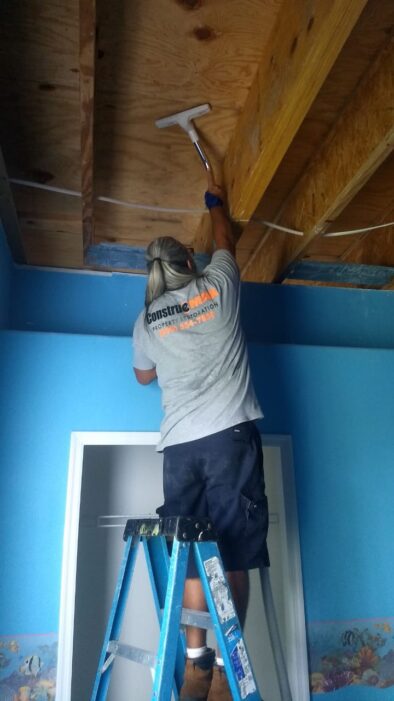
This doesn’t apply to all families or all friends, but are you willing to jeopardize the personal relationship? It has happened and is too common, where someone gives a friend or family member a referral based on a great experience, then the company is unsatisfactory or worse for that friend or family member, and the relationship is strained because of it. Friends have been lost because of these sorts of experiences. It’s sad but true.
Again, experience with fire remediation is very, very important. The last thing you want is to have your home rebuild by a great contractor that does amazing work but they were not able to properly remediate the damages. When this happens, very often you end up with secondary damages or even worse. Your home looks amazing, but it still smells like smoke.
This is not to say that your builder friend isn’t the best choice. By all means, hire the contractor you trust. Please, for your own sake and peace of mind, just be certain they can handle the mitigation process correctly and know how to properly document the loss for the insurance company. Your contractor can’t represent you with the insurance company like a lawyer or public adjuster, but it is really helpful if they can talk to your insurance company about their activities, keep them informed of progress, and work with them doing direct billing and so forth. This helps everyone so everyone can have a smooth process from Start to finish.
Even if you decide to hire your friend for the reconstruction, if they are not experienced with the mitigation portion of the work, all work that needs to be completed before reconstruction begins, then please, for the sake of your family’s health, and your financial wellbeing, hire someone who is experienced in post-disaster cleanup. Not doing this step properly can be costly later, even rendering a home unsellable.
Still Waiting
Now, regardless of which of these things you’ve done, you and your family, still displaced, on a cold night, barely with any clothes on, hungry, using your neighbor’s phone, are relying on a referral hoping they will show up when they said.
Rely on Someone Introduced to You by a Firefighter?
This is a HUGE topic that needs to be understood and considered. A firefighter might give the homeowner the name of a company that is known to help homeowners after a fire like this.
We are taught from childhood to trust the police, firemen, and other public servants and first responders. Despite this, are they all the same? We know they are not. Some are fantastic and really good at what they do and how they serve the public. But not all. When first responders do something wrong or illegal, we want to hold them accountable for their wrongdoing; should ALL of them be considered bad? Of course not.
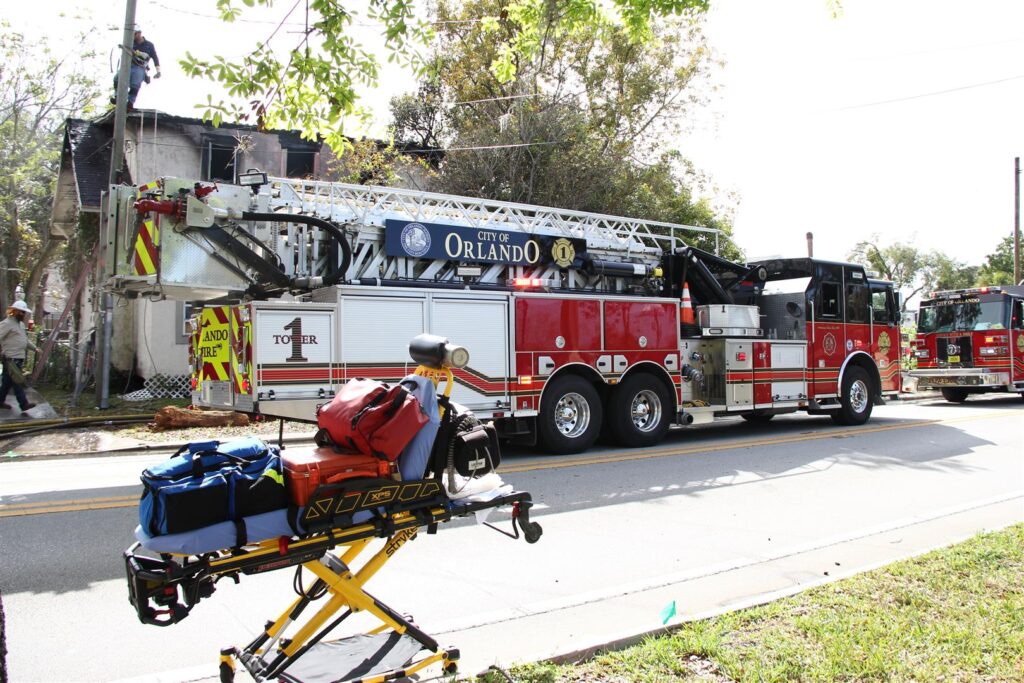
This applies in every profession. Doctors and nurses save lives every day, and yet a few bad actors in the industry put a scar on their profession. Are they all the same? The minute we generalize we are being judgmental and biased at the very least. It is fair to say that every profession includes good and bad people.
There are nationwide franchises and companies that pride themselves in having a close affiliation with the local fire departments so they can be the first ones on the scene of a fire. Their inside source will let them know about a fire. But more than just passing along information, some fire departments provide special access to those companies. Is that appropriate? That’s a call you get to make.
The fireman will, appropriately, set a perimeter around the scene of the fire, sometimes blocking an entire street. Behind this perimeter is where you will find neighbors, news media, board-up companies, public adjusters, and all other bystanders. This allows the firemen to work uninterrupted. It keeps them safe, and it keeps the onlookers safe too.
As the work of the firefighters winds down, you might notice someone in a fire department uniform escorting someone, not in a public servant uniform, to the homeowner and making an introduction. Who is this person, and why are they not behind the yellow tape?
It is quite likely that this person being escorted to the homeowner is a representative of an Emergency Services company that has a personal relationship with someone at the fire department (though it could just as easily be a public adjuster, lawyer, or reporter). Perhaps they play golf together, or their kids are on the same little league team. That’s fine. But does this special relationship mean that this company is the right company for you?
What Is Ethical, What Is Not?
When it comes to a public servant using their credibility to refer a friend, there is a question of ethics. It isn’t unethical for someone to refer a competent company, who does good work – who provides the needed services to the homeowner in their hour of need. That’s a good thing. But is special access ethical?
When a representative of the fire department, in uniform, makes a recommendation, or an insurance agent or claims department refers someone from an approved vendors list, or when a lawyer or public adjuster gives you the name of a contractor they work with, it conveys an air of authority – transferring that authority to the recommended company. It might send a signal of delegitimization toward those not recommended.
Is it ever unethical for someone to give you a recommendation? You, as the person in that situation, will determine that.
For some it is a concern about equal treatment of businesses and a level playing field, for others it is a question of interests, when the person gives a recommendation, who are they really looking out for? And others have concerns about a so-called ‘good ole boys’ connection.
While these questions stir in your head, the other side of that coin is the possibility that you are getting a recommendation that will protect you from frustration and disappointment. If these professionals have had experience with multiple companies, they might be steering you around potholes that they’ve seen before that you can’t see.
This is why it comes down to trust. Is the person thinking about their special relationship with a contractor, or about you and your best interest? Only you can make that judgement. If you can get the ‘inside track’ and get ‘the hookup’ with the best company in town, nobody can fault you for that.
While this isn’t exactly a question of ethics, something you might be wondering is, why would a fireman or lawyer know which companies are competent in fire mitigation, cleanup, and reconstruction? He or she might have personal experience, but it isn’t something that would be an area of expertise by virtue of being a trained firefighter or passing the Bar. What is it about their recommendation that gives you confidence?
The Fire Chaser
Companies that do fire chasing as a way of finding customers to help could come and many shapes and sizes. Franchises, national brands, regional brands, small mom and pop operations, you name it.
The thing is, many of the very negatively biased articles, written by those who despise fire chasers and critical of their practices, describe things in such a way that it is obvious to anyone who has done fire chasing, they have been in the field, doing fire chasing themselves. It seems they could not handle the heat. You would think that for a company that works with fires they could, but clearly they could not.
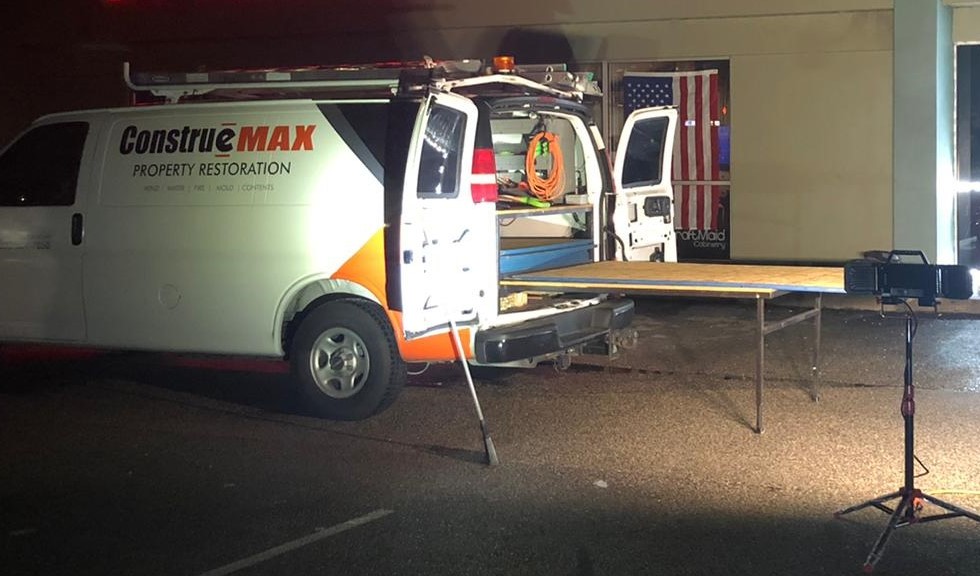
To be fair, this approach to finding customers and helping the community is only one of many ways to market Emergency Services. It may not be right for every business or the personality of those business owners. There’s nothing wrong with that. But there is nothing wrong with chasing fires either. What IS wrong is how some fire chasers conduct themselves. This is where good people need to influence the whole industry for good.
These first responders to property loss offer services to the homeowners in the very hour of need. If you found yourself out and about and unexpectedly experienced a heart attack or stroke, or your loved one did, you wouldn’t reject the help of the doctor who was there when it happened. You’d be very grateful. Even if you couldn’t see a doctor until you got to the emergency room, you’re very grateful to those doctors who provide necessary medical treatment in the hour of need. You probably also have never met this doctor or know anything about his or her training or competency, but what choice do you have?
You can’t bring your home to a house fire emergency room. That is why the firemen come to you, and that is why the Emergency contractors come to you, in your hour of need. We make house calls, even if your emergency doctors don’t.
Interview the Fire Chasers Across the Street
Standing right across the street, on a cold night, with eagerness and preparation are: The Fire Chasers!
Hopefully, amongst the group there is a “good guy”, who stayed in the industry, who can at least provide you with some guidance, and some boards and tarps as needed.
If you have been struck with a property loss such as “car vs building”, fire and water damage, or a tree falling on your home, you will need someone to assist with securing your property. Securing your property is the first step to be compliant with your insurance policy. Remember the condition of the policy to take reasonable measures to prevent additional damage?
Protect and Preserve Your Property
A quick note about preventing further damage. Your insurance policy has a section for conditions. This section details the policy holders’ obligations. One of those obligations will be that you protect the property from further damage. In a standard policy, one of the coverages provided is that the insurance company will pay reasonable costs incurred to meet this obligation. As such, getting this taken care of at the earliest time, to prevent further damage, will be a strong sign of goodwill on your part to your insurance company.
Another obligation in connection to these efforts to protect the property, is to keep accurate records of these repair expenses. Right at the very beginning of the incident is the ideal time to start keeping these records. It is in your best interest to work with a company that is experienced with the documentation required by the insurance company. This becomes especially helpful when it comes to inventorying your personal property that was damaged.
No Judgement, but Recommendations
To be fair, NO ONE has the right to judge you and your family for signing a contract with a sharp talker at 2:00 Am on a cold night while your family is displaced. Most people have not experienced this sort of disaster, and not everyone has the resources to undo a mistake. The best thing to do if you are ever faced with this situation and meet a fire chaser is to listen carefully. Here are some things to watch for, ask about, and investigate:
- Listen to their pitch. There may be two different things they will be offering:
- Emergency services: This is the board up, tarping, temporary fencing, water extraction, debris removal, dry out of your home, cleaning of smoke and soot, etc. These are services that protect your property from additional damage. These are things you’re obligated to do by the conditions of your insurance policy.
- Reconstruction services: This is rebuilding your home after all the debris has been removed, water extracted, the home dried out, cleaned of soot, and deodorized of smoke.
If you are told that “you don’t have to pay a deductible” for reconstruction, RUN AWAY. This can lead to an insurance fraud investigation. The builder doesn’t have the ability to waive your deductible. Deductibles are part of the insurance policy and the builder is not part of that relationship.
- Emergency services: This is the board up, tarping, temporary fencing, water extraction, debris removal, dry out of your home, cleaning of smoke and soot, etc. These are services that protect your property from additional damage. These are things you’re obligated to do by the conditions of your insurance policy.
- Ask if they are part of any insurance company vendor programs.
Insurance run vendor programs usually mean that the contractor has been vetted, as mentioned above. It doesn’t mean they are right for you. It doesn’t mean that they are the company that you will feel comfortable with. But it might.
Being part of a program means that they are held to high standards by the insurance companies. It also means that the insurance carrier will be checking up regularly on the progress of the reconstruction. Nobody can determine if the work they’ve done on your home is satisfactory but you.
Being an approved vendor is a starting point. They are not a fly-by-night operation that is coming from out of state or anything like that. - Investigate their cancellation policy. Do they have a CANCELLATION FEE?
By law, you are entitled to cancel any contract like this on your home within three business days.
You can cancel your contract at any time after that, but there may be fees. Of course, any work already performed – you would be responsible for, nothing in life is free except a smile and a prayer. But see if there are any cancellation fees in addition to that. If so, what are they? Get out your magnifying glass if you need to. If they have a cancellation fee, can you live with it? Or does it make you feel like you will be held hostage by it?
It may be cold and uncomfortable. Maybe it’s hot and mosquitoes are biting. Either way, read what they give you and make sure you read the cancellation policy. You don’t want to regret it later. - DO NOT sign an Assignment of Benefits (AOB)
The State of Florida has recently changed their laws about the use of an Assignment of Benefits. While the Assignment of Benefits is presented as a way to simplify things for the homeowner, there was a lot of abuse. The changes to the law are to make abuse harder. But no Assignment of Benefits is ever necessary.
While dealing with insurance claims can get very complicated, the principles are very simple. As a policyholder, if you experience a covered loss, the insurance company will indemnify you (that is to compensate you) so that you can hire someone to fix your home. An Assignment of Benefits is not necessary for that. If a contractor requires that of you, it is a red flag that you should not ignore. It doesn’t mean they will take advantage of you, but if it isn’t needed to actually complete the repairs, you kind of wonder why they require it.
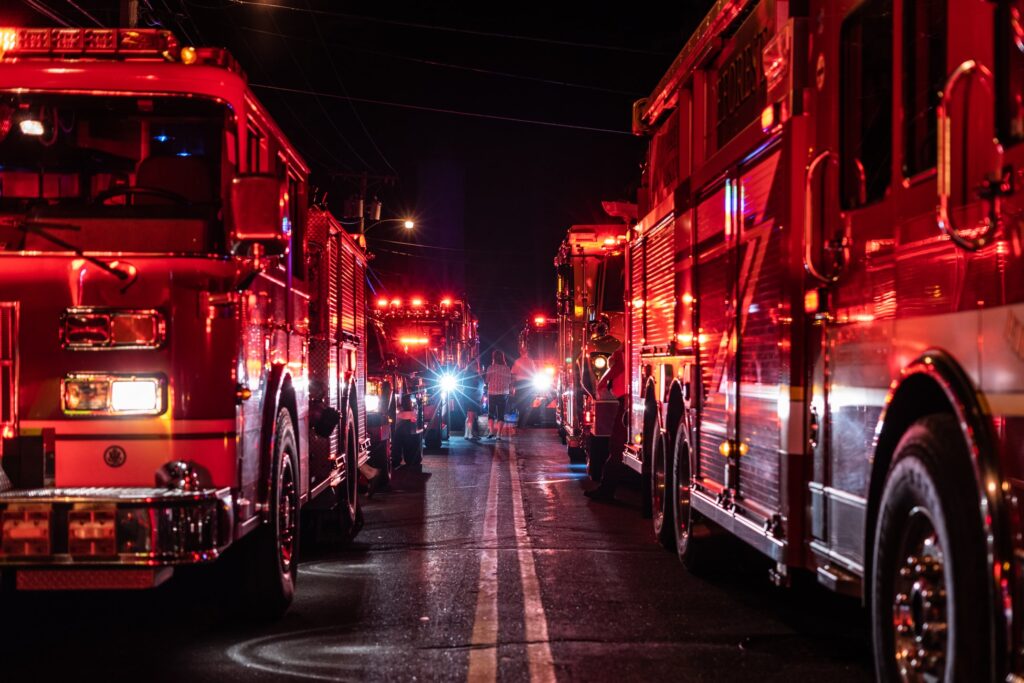
When You Have Time to Think
On the sidewalk in front of your home you have so much to deal with. Getting your home secured is high on the list. You might hire someone to board up and tarp your home right then and there. Hiring someone to rebuild your home after the cleanup is completed is something that can wait until you have some time to think.
If you’ve spoken with the contractors that came to the scene of your fire, you have a starting point to figure out who to hire. If you got out of your home with your phone, you may be able to research these companies right there, while the fire is being fought, or while you’re waiting for the ‘all clear’ from the fire department. Whenever you do the research, some things you might consider:
- Check online reviews.
- Google the company. See what you can find. Has the company been the subject of an ‘investigative report’ by local news?
- See if the Better Business Bureau (BBB) has anything to say about them.
- Verify their licenses by going to: myfloridalicense.com/ and click ‘Verify A License’.
- Ask yourself, “If the insurance company send this company, would I hire them?”
Just to Be Sure
As a LAST resort, in case time and circumstances make it hard to verify everything, write on the work authorization with which you are presented, in BOLD LETTERS, that you ONLY AUTHORIZE THE IMMEDIATE SERVICE TO BE PROVIDED (such as a board up and/or tarp after fire) FOR THE PURPOSE OF AVOIDING SECONDARY AND FURTHER DAMAGE.
Final Notes
One tactic used by some contractors is to rush in, before the insurance company even has the chance to see the loss and start work. They engage a lot of workers, set up equipment (often way more than is necessary), and start removing all of the belongings and debris. Maybe the same day, maybe the next day. Again, they do this before the insurance company has had a chance to come to the scene.
They might be doing this to inflate the bill and to be so embedded in the job that you feel like your stuck. Like a hostage and it’s too late to do anything. Then the job stalls and lingers for months or years with nothing happening at your home. Be cautious.
Some work like water extraction, structural drying, or tree removal needs to be done as soon as possible because otherwise there can be additional damage. But make sure that you’re addressing immediate needs immediately, and that everything else is happening at an appropriate time. You want the insurance company to properly inspect the damage so you can be fairly indemnified.
In Conclusion
Dealing with any type of property loss is not an easy task even for someone with a lot of resources.
We hope you never need our services but if the unexpected happens, Relax – Trust Construemax.







